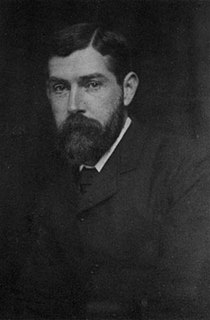A Quote by Napoleon Hill
Men take on the nature and the habits and the power of thought of those with whom they associate in a spirit of sympathy and harmony.
Related Quotes
From harmony, from heavenly harmony, This universal frame began: When nature underneath a heap Of jarring atoms lay, And could not heave her head, The tuneful voice was heard from high, 'Arise, ye more than dead!' Then cold, and hot, and moist, and dry, In order to their stations leap, And Music's power obey. From harmony, from heavenly harmony, This universal frame began: From harmony to harmony Through all the compass of the notes it ran, The diapason closing full in Man.
For those in whom a local mythology still works, there is an experience both of accord with the social order, and of harmony with the universe. For those, however, in whom the authorized signs no longer work-or, if working, produce deviant effects-there follows inevitably a sense both of dissociation from the local social nexus and of quest, within and without, for life, which the brain will take to be for 'meaning'.
The day becomes more solemn and serene When noon is past; there is a harmony In autumn, and a lustre in its sky, Which through the summer is not heard or seen, As if it could not be, as if it had not been! Thus let thy power, which like the truth Of nature on my passive youth Descended, to my onward life supply Its calm, to one who worships thee, And every form containing thee, Whom, SPIRIT fair, thy spells did bind To fear himself, and love all human kind.
Monarchy can easily be "debunked," but watch the faces, mark well the debunkers. These are the men whose taproot in Eden has been cut: whom no rumour of the polyphony, the dance, can reach - men to whom pebbles laid in a row are more beautiful than an arch. Where men are forbidden to honour a king they honour millionaires, athletes or film stars instead: For spiritual nature, like bodily nature, will be served; deny it food and it will gobble poison.
Criticism is a study by which men grow important and formidable at very small expense. The power of invention has been conferred by nature upon few, and the labour of learning those sciences which may, by mere labour, be obtained, is too great to be willingly endured; but every man can exert some judgment as he has upon the works of others; and he whom nature has made weak, and idleness keeps ignorant, may yet support his vanity by the name of critic.


































